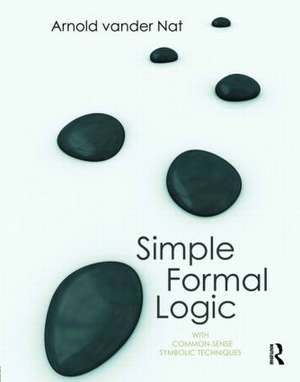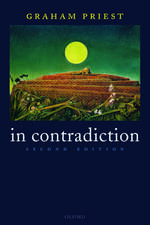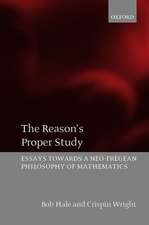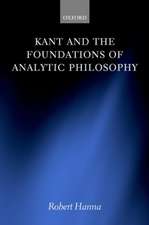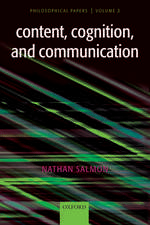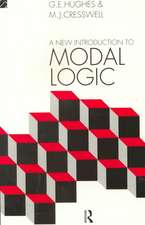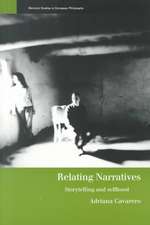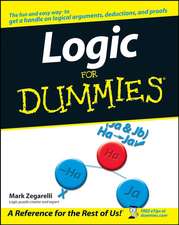Simple Formal Logic: With Common-Sense Symbolic Techniques
Autor Arnold vander Naten Limba Engleză Hardback – 16 dec 2009
Simple Formal Logic features:
- a companion website with abundant exercise worksheets, study supplements (including flashcards for symbolizations and for deduction rules), and instructor’s manual
- two levels of exercises for beginning and more advanced students
- a glossary of terms, abbreviations and symbols.
Preț: 1016.06 lei
Preț vechi: 1239.11 lei
-18% Nou
Puncte Express: 1524
Preț estimativ în valută:
194.41€ • 203.01$ • 160.55£
194.41€ • 203.01$ • 160.55£
Carte tipărită la comandă
Livrare economică 15-29 aprilie
Preluare comenzi: 021 569.72.76
Specificații
ISBN-13: 9780415997454
ISBN-10: 0415997453
Pagini: 360
Ilustrații: 50 color tables
Dimensiuni: 203 x 254 x 23 mm
Greutate: 0.91 kg
Ediția:1
Editura: Taylor & Francis
Colecția Routledge
Locul publicării:Oxford, United Kingdom
ISBN-10: 0415997453
Pagini: 360
Ilustrații: 50 color tables
Dimensiuni: 203 x 254 x 23 mm
Greutate: 0.91 kg
Ediția:1
Editura: Taylor & Francis
Colecția Routledge
Locul publicării:Oxford, United Kingdom
Public țintă
UndergraduateCuprins
Chapter 1: Basic Logical Concepts 1.1 Introduction 1.2 Arguments 1.3 Evaluating Arguments 1.4 Classification of Sentences 1.5 Proofs, Inconclusive and Erroneous Arguments 1.6 Deductive and Inductive Validity Chapter 2: Propositional Logic 2.1 Introduction to Propositional Logic 2.2 Details about Negations 2.3 Details about Conditional Sentences 2.4 Determining the Truth-Value of Sentences 2.5 Truth-Tables to Test the Validity of Arguments 2.6 Truth-Table Tests for Other Logical Concerns 2.7 Presentation of the Rules of Deduction 2.8 Making Deductions for Arguments 2.9 Strategy in Deductions 2.10 The Rules of Conditional Proof and Indirect Proof 2.11 Further Uses of Deductions Chapter 3: Traditional Logic 3.1 Introduction: New Perspectives 3.2 Categorical Sentences in Traditional Logic 3.3 English Variations on Categorical Forms 3.4 Venn Diagrams for Categorical Sentences 3.5 Venn Diagrams for Syllogisms and Equivalences 3.6 Equivalence Operations 3.7 Deductions in Traditional Logic 3.8 Combining Propositional Logic with Syllogistic Logic Chapter 4: Modern Quantificational Logic 4.1 Introduction to Quantificational Logic 4.2 Types of English Simple Sentences and Other Detail 4.3 The Truth-Value of Quantificational Sentences 4.4 Deductions in Quantificational Logic 4.5 Deductions with Conditional Proof and Indirect Proof 4.6 Demonstrating Invalidity 4.7 Relational Sentences 4.8 Deductions with Relational Sentences 4.9 Working with Identities Chapter 5: Logical Fallacies 5.1 Introduction 5.2 Fallacies of Irrelevance 5.3 Fallacies of Misconstrual 5.4 Fallacies of Presumption Glossary and Index of Terms, List of Symbols and Abbreviation
Notă biografică
Arnold vander Nat is Associate Professor of Philosophy at Loyola University Chicago. He has taught courses at the introductory, intermediate, and advanced levels in logic, epistemology, and early modern philosophy.
Recenzii
'Arnold vander Nat’s Simple Formal Logic is simply better than its closest competitors at presenting material for an undergraduate audience, new to the subject. Its greatest merit is that it explains complex and challenging material in layman’s terms and then moves on to more technical language. This approach makes it both highly accessible and engaging. It’s one of the few logic textbooks that I really liked reading.' – Chunghyoung Lee, California State University, Fresno, USA
'I was floored by this fabulous logic text and by the talents of its author! I tremendously enjoyed reading it, and can't wait until I can adopt it as my class text.' – Michael Latzer, Gannon University, USA
'I was floored by this fabulous logic text and by the talents of its author! I tremendously enjoyed reading it, and can't wait until I can adopt it as my class text.' – Michael Latzer, Gannon University, USA
Descriere
Perfect for students with no background in logic or philosophy, Simple Formal Logic provides a full system of logic adequate to handle everyday and philosophical reasoning. By keeping out artificial techniques that aren’t natural to our everyday thinking process, Simple Formal Logic trains students to think through formal logical arguments for themselves, ingraining in them the habits of sound reasoning.
Simple Formal Logic features:
Simple Formal Logic features:
- a companion website with abundant exercise worksheets, study supplements (including flashcards for symbolizations and for deduction rules), and instructor’s manual
- two levels of exercises for beginning and more advanced students
- a glossary of terms, abbreviations and symbols
